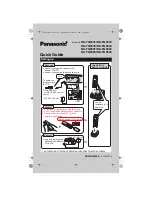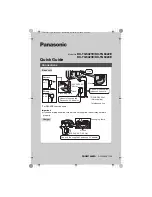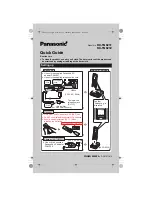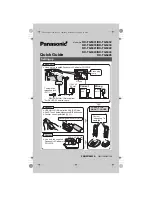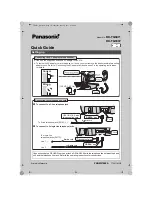
Appendix
66
Maintenance
Taking care of your telephone
Your telephone contains sophisticated electronic parts, so it must be treated with care.
Avoid rough treatment
Place the handset down gently. Save the original packing materials to protect your telephone if you
ever need to ship it.
Avoid water
Your telephone can be damaged if it gets wet. Do not use the handset outdoors in the rain, or handle it
with wet hands. Do not install the telephone base near a sink, bathtub or shower.
Electrical storms
Electrical storms can sometimes cause power surges harmful to electronic equipment. For your own
safety, take caution when using electrical appliances during storms.
Cleaning your telephone
Your telephone has a durable plastic casing that should retain its luster for many years. Clean it only
with a soft cloth slightly dampened with water or mild soap. Do not use excess water or cleaning
solvents of any kind.
About cordless telephones
Privacy:
The same features that make a cordless telephone convenient create some limitations.
Telephone calls are transmitted between the telephone base and the cordless handset by radio
waves, so there is a possibility that the cordless telephone conversations could be intercepted by
radio receiving equipment within range of the cordless handset. For this reason, you should not think
of cordless telephone conversations as being as private as those on corded telephones.
Electrical power:
The telephone base of this cordless telephone must be connected to a working
electrical outlet. The electrical outlet should not be controlled by a wall switch. Calls cannot be made
from the cordless handset if the telephone base is unplugged, switched off or if the electrical power
is interrupted.
Potential TV interference:
Some cordless telephones operate at frequencies that may cause
interference to televisions and VCRs. To minimize or prevent such interference, do not place
the telephone base of the cordless telephone near or on top of a TV or VCR. If interference is
experienced, moving the cordless telephone farther away from the TV or VCR often reduces or
eliminates the interference.
Rechargeable batteries:
Exercise care in handling batteries in order not to create a short circuit with
conducting material such as rings, bracelets and keys. The battery or conductor may overheat and
cause harm. Observe proper polarity between the battery and the battery charger.
Nickel-metal hydride rechargeable batteries:
Dispose of these batteries in a safe manner. Do
not burn or puncture the battery. Like other batteries of this type, if burned or punctured, they could
release caustic material which could cause injury.
•
•
•
•
•
Remember that electrical appliances can cause serious injury if used when you are wet or standing
in water. If the telephone base should fall into water, DO NOT RETRIEVE IT UNTIL YOU UNPLUG
THE POWER CORD AND TELEPHONE LINE CORD FROM THE WALL. Remove the telephone by
the unplugged cords.





























